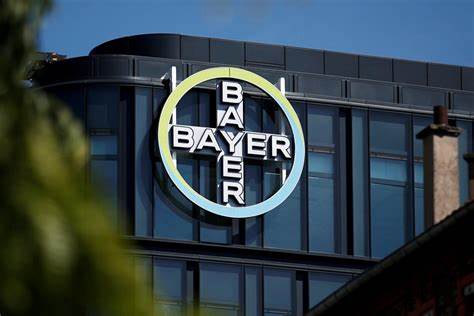The German chemicals maker Bayer AG (DE:BAYN) reported a significant downturn in its financial performance, swinging from a profit of €4.15 billion in the previous fiscal year to a loss of €2.94 billion in Fiscal 2023. In response to these challenges, CEO Bill Anderson has outlined a four-point agenda aimed at steering Bayer towards a turnaround. However, the option of splitting the company has been excluded from the current strategy.
Following this news, BAYN shares experienced a sharp decline, falling by 7.6% to reach a new 52-week low of €25.85 in trading yesterday. This substantial drop underscores the market’s reaction to Bayer’s disappointing financial results and the challenges ahead as the company works to implement its turnaround plan.
Details About Bayer’s FY23 Results
Bayer’s sales experienced a notable decline of 6.1% to €47.6 billion in Fiscal Year 2023, primarily attributed to reduced pricing for its glyphosate-based products. Within its business segments, Bayer’s Crop Science unit witnessed a 3.7% decrease in sales, while Pharmaceuticals sales remained unchanged compared to the previous year. However, the Consumer Health unit reported a positive growth of 6.3% in sales, driven by strong performance in Dermatology and Pain & Cardio categories.
Despite these revenue challenges, Bayer’s Crop Science unit incurred significant net special charges amounting to €6.977 billion, primarily due to substantial impairment losses. Consequently, the company’s full-year free cash flow plummeted by 57.9%, while net debt surged by 8.5% to approximately €34.5 billion.
Looking towards the future, Bayer has provided sales guidance for Fiscal Year 2024 in the range of €47 to €49 billion on a currency-adjusted basis. Additionally, the company anticipates generating free cash flow between €2 to €3 billion during the same period. Net debt by the end of Fiscal Year 2024 is projected to be in the range of €32.5 to €33.5 billion.
CEO’s Four-Point Agenda
Anderson remains resolute in his decision to postpone the breakup of Bayer, despite mounting pressure from investors urging the company to make at least one of its divisions profitable. While Anderson hasn’t entirely dismissed the possibility of a split, he emphasized that it’s not currently under consideration.
However, he highlighted four immediate challenges that demand urgent attention. Firstly, he emphasized the need to bolster the Pharmaceuticals pipeline, particularly in light of several blockbuster medications nearing the expiration of their patents. Secondly, he aims to address the litigation surrounding the glyphosate-based Roundup weedkiller, which faces allegations of carcinogenic properties. Bayer is confronted with substantial legal settlements amounting to billions of euros in relation to ongoing lawsuits concerning the herbicide.
Anderson’s immediate priorities also include addressing the company’s substantial debt load. Bayer aims to attain an A rating on its debt by pursuing profitable growth strategies and amending its dividend policy. To this end, Bayer has already implemented drastic measures, including a 95% reduction in its dividend, resulting in annual savings of €2 billion. Additionally, Bayer had previously hinted at significant job cuts as part of its cost-saving efforts.
Furthermore, Anderson is keen on restructuring the company’s operational framework by introducing the new Dynamic Shared Ownership (DSO) operating model. This model aims to foster a more customer-centric approach and prioritize innovation by reducing hierarchical structures, streamlining operations, and expediting decision-making processes. Through the implementation of DSO, Bayer anticipates annual cost savings of €2 billion by 2026. Additionally, the company plans to focus on introducing blockbuster products across all three divisions to drive growth and profitability.
